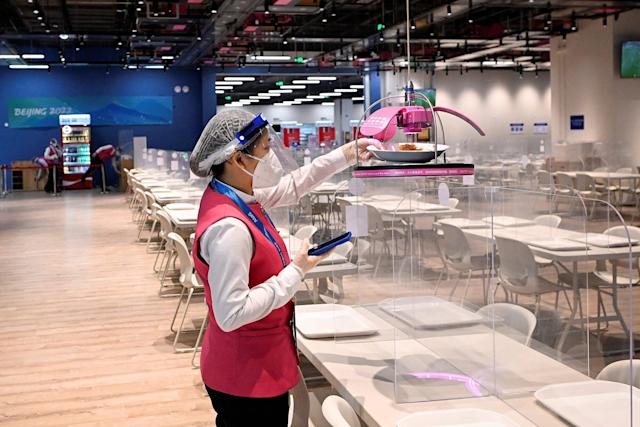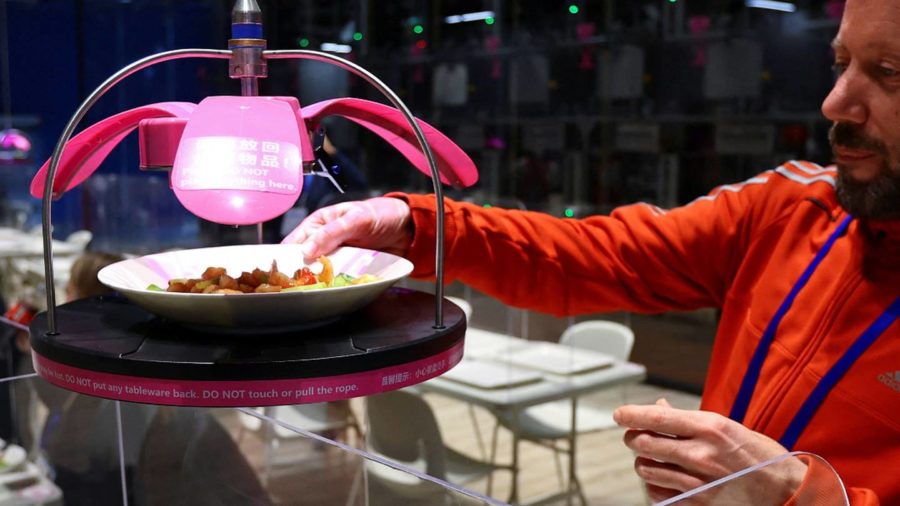Robot Waiters Deliver Dishes By Dropping Them Down from the Ceiling at the Beijing Olympics–
In an attempt to decrease face-to-face contact in the Olympics “loop,” the Beijing Winter Games is relying on automation to make prepare and deliver food and drinks.
The following written content by Jelisa Castrodale

For the second time in two years, the Olympic Games are being held during a worldwide pandemic. The attendees of the Winter Olympics, which begin in Beijing on February 4, will be required to remain inside what NPR describes as a “carefully guarded” closed loop that encompasses 25 different sites. All athletes, volunteers, and other participants are required to be fully vaccinated, will be tested for COVID every day, and will have to wear an underarm temperature monitor.
Attendees have already been instructed to limit physical interactions like handshakes, high fives and hugs, and to adhere to that now familiar “six feet of social distance” rule. And in addition to those daily precautions, the organizers are relying on a number of automated options put in place to decrease the amount of face-to-face contact that happens within that loop.
According to Chinese media, the Beijing Winter Olympics Main Media Center is equipped with a huge ceiling-mounted robot arm that lowers bowls of noodles to diners who are seated at Plexiglas-surrounded tables. (If you’ve ever played one of those crane games at an arcade, it’s basically that with much better odds.)
There is also a “robot chef” that cooks and prepares hamburgers and other dishes that can be delivered remotely. Another robot takes less than four minutes to grind fresh coffee beans and brew a cup of coffee. And a third — a huge metal arm — is working as a bartender. Anyone who wants a cocktail scans a code on their phones and then waits 90 seconds while the disembodied arm wields a shaker, selects a glass, and neatly pours the drink.
“The intelligent meal preparation and meal service system here can not only improve the efficiency of meal supply, but also save manpower to the maximum extent and avoid excessive human interaction in the context of epidemic prevention and control,” the state-run Xinhua News Agency wrote. “The media restaurant will operate 24 hours a day during the competition, providing various dining options such as Chinese food, Western food, and fast food.”
All of these robots probably aren’t a bad idea, considering the number of people who will be staying inside the loop through the closing ceremonies —Read more from Food & Wine.
Subscribe here
Not new but very interesting videos below:





